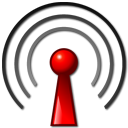Neuroscience
Interested in cognitive science? Lots of us are, and I get questions from readers (thanks!!) asking for resources to this interdisciplinary field, which comprises the "...study of mind and intelligence, embracing philosophy, psychology, artificial intelligence, neuroscience, linguistics, and anthropology" (Stanford Encyclopedia of Philosophy).
I'm including three sets of resources, and omitting two. This is due to my own professional and learning biases. I'm a text-based learner and like to read my cognitive science in short bursts (reference material, Twitter, or blogs) or listen to interviews with cognitive scientists. So these biases give me great familiarity with:
 Twitter & Blogs
Twitter & Blogs
These are in addition to the Twitter feeds mentioned elsewhere in this post (like @SciAmMind and @AllintheMind).
Podcasts (oh my!)
 Books & Magazines
Books & Magazines
As a librarian, I'm very familiar with reference resources such as encyclopedias and dictionaries, and there are some wonderful reference sources for cognitive science -- and if you're new to cognitive science as a whole,
Books are linked to WorldCat, so you can see if a nearby library owns the title. You can also easily get from WorldCat to Amazon or Barnes & Noble to order the title for your collection.
What's your favorite Cognitive Science resource? Feel free to add yours in the comments!
- Favorite Podcasts
I've had two conversations recently in which I was discussing favorite science podcasts. Since this blog serves as a long-term memory aid, I'm listing, in alphabetical order, some of the sci-tech podcasts I like right now. (read about earlier...
- Finding Cogsci Podcasts
In case you're wondering ... here are some ways to find nifty cognitive science & other podcasts. Here's a Google search trick I use to find podcasts of interviews with folks whom I'd like to hear: inurl:podcast + "name of person" (in...
- Another Reason I Blog
This blog was originally intended to provide a spot to put articles, links, etc. I found that would interest "my" faculty & staff at Hampshire College's School of Cognitive Science. I became more and more interested in the interdisciplinary topic...
- Christof Koch Now
["... Now" is a short post of cog sci topics in the news] Ginger Campbell over at the Brain Science Podcast recently interviewed Christof Koch. It’s a fascinating discussion -- almost a lecture by Koch -- on the nature of consciousness. Koch kept things...
- Mind & Brain Portal, From Wikipedia
Wikipedia may be controversial, but that's because some stuff is good & some stuff is, well, not reliable. That said, the Mind & Brain Portal (which I found through Sci Am Mind) is "an interdisciplinary point of entry to such related fields as the...
Neuroscience
#NewToCogSci: Resources for the Curious
Interested in cognitive science? Lots of us are, and I get questions from readers (thanks!!) asking for resources to this interdisciplinary field, which comprises the "...study of mind and intelligence, embracing philosophy, psychology, artificial intelligence, neuroscience, linguistics, and anthropology" (Stanford Encyclopedia of Philosophy).
I'm including three sets of resources, and omitting two. This is due to my own professional and learning biases. I'm a text-based learner and like to read my cognitive science in short bursts (reference material, Twitter, or blogs) or listen to interviews with cognitive scientists. So these biases give me great familiarity with:
- Twitter & Blogs
- Podcasts
- Books & Magazines
 Twitter & Blogs
Twitter & BlogsThese are in addition to the Twitter feeds mentioned elsewhere in this post (like @SciAmMind and @AllintheMind).
- @mocost (Mo Costandi) writes the Neurophilosophy blog for the Guardian and describes himself as a "Neuroscientist turned writer."
- @neuroconscience (Micah Allen) is a PhD in cognitive neuroscience; meta/social cognition, neural plasticity, connectivity, & mental training. Solid news about all of the above.
- @TheNeuroScience (Stanford) tweets lots of news about neuro- and cognitive science.
- @PsychScience (Association for Psychological Science) tweets news and scholarly articles about all aspects of psychology.
- @TheSocialBrain (Dr. SunWolf) tweets about "neuroscience, social behaviors, and the science of happiness."
- @VaughanBell tweets news & articles about all aspects of cognitive science and science more broadly. He also blogs at MindHacks (which is also on Twitter @mindhacksblog).
Podcasts (oh my!)
- All in the Mind is a weekly 30-minute radio show from the Australian Broadcasting Corporation's Radio National. Host Lynne Malcolm covers one brain / cognitive science / mind issue per show. Recent episodes have covered The Science of Compassion, The Psychology of Cults, and How language shapes thought.
They say that it's "a program about the mind, brain and behaviour, and the endlessly fascinating interactions between them;" I say it's a must-listen. See also @AllintheMind on Twitter. - Brain Science Podcast is a monthly hour-long interview with leading scientists in all areas of brain science from independent podcaster and emergency physician Ginger Campell. This year's shows have featured, among others, neurophilospher Patricia Churchland, Christof Koch, and a detailed review of Antonio Damasio's Self Comes To Mind: Constructing the Conscious Brain.
Check out all 92 episodes, which include detailed show notes and the podcast. If you're new to cognitive science, the first few episodes are a great introduction to various concepts. - On Being. American Public Media's weekly hour-long show features Krista Tippett talking about a variety of spiritual and scientific topics. The most recent episode is about language (Unfolding Language, Unfolding Life); other episodes include Opening to Our Lives: Jon Kabat-Zinn's Science of Mindfulness, The Science of Healing Places with Esther Sternberg, and Investigating Healthy Minds with Richard Davidson.

 Books & Magazines
Books & MagazinesAs a librarian, I'm very familiar with reference resources such as encyclopedias and dictionaries, and there are some wonderful reference sources for cognitive science -- and if you're new to cognitive science as a whole,
Books are linked to WorldCat, so you can see if a nearby library owns the title. You can also easily get from WorldCat to Amazon or Barnes & Noble to order the title for your collection.
- Scientific American Mind is a wonderful magazine with articles written for a scientifically knowledgeable lay audience; topics cover all areas of cognitive science and neuroscience. Recent articles include "How Video Games Change the Brain", "Schools Add Workouts for Attention, Grit and Emotional Control," and Christof Koch usually has a column on Consciousness in each issue.
The website offers a few paragraphs of each article for free, but to read the full article, you need a subscription (through your library or on your own). Each major article offers citations for more reading on the article's topic. Check out @SciAmMind on Twitter, too.
They have a section of Reviews and Recommendations (2012; 2013) which is a good way to find popular non-fiction in cognitive science. - The open access Stanford Encyclopedia of Philosophy includes several entries containing the word "cognitive" which include cognitive science, embodied cognition, and evolutionary psychology. They also cover topics like emotion and consciousness as well as biographical entries on folks ranging from Socrates to Descartes to Sartre.
The SEP's goal is to provide "the philosophical profession and the general public alike with high-quality scholarship on a variety of topics relevant to the human condition," writes Edward Zalta ("The Stanford Encyclopedia of Philosophy: A university/library partnership in support of scholarly communication and open access," College & Research Library News, Sept. 2006 (pdf)) - A great dictionary for understanding psychology terms is Raymond Corsini's 1999 Dictionary of Psychology. The images are terrific (my favorite is the one for pilomotor response) and the definitions are clear and concise. Citation: Corsini, R. J. (1999). The dictionary of psychology. Philadelphia, PA: Brunner/Mazel.
- A great encyclopedia is Michael Gazzaniga's The Cognitive Neurosciences, the fourth edition of which came out in 2009. The academic library review magazine Choice calls it a "benchmark resource for the cognitive neurosciences" (May 2010); sections include Development and Evolution; Plasticity; Attention; Sensation and Perception; Memory; Language; The Emotional and Social Brain; Consciousness and several more. Citation: Gazzaniga, M. S. (2009). The cognitive neurosciences. Cambridge, Mass: MIT Press.
- Favorite Podcasts
I've had two conversations recently in which I was discussing favorite science podcasts. Since this blog serves as a long-term memory aid, I'm listing, in alphabetical order, some of the sci-tech podcasts I like right now. (read about earlier...
- Finding Cogsci Podcasts
In case you're wondering ... here are some ways to find nifty cognitive science & other podcasts. Here's a Google search trick I use to find podcasts of interviews with folks whom I'd like to hear: inurl:podcast + "name of person" (in...
- Another Reason I Blog
This blog was originally intended to provide a spot to put articles, links, etc. I found that would interest "my" faculty & staff at Hampshire College's School of Cognitive Science. I became more and more interested in the interdisciplinary topic...
- Christof Koch Now
["... Now" is a short post of cog sci topics in the news] Ginger Campbell over at the Brain Science Podcast recently interviewed Christof Koch. It’s a fascinating discussion -- almost a lecture by Koch -- on the nature of consciousness. Koch kept things...
- Mind & Brain Portal, From Wikipedia
Wikipedia may be controversial, but that's because some stuff is good & some stuff is, well, not reliable. That said, the Mind & Brain Portal (which I found through Sci Am Mind) is "an interdisciplinary point of entry to such related fields as the...
